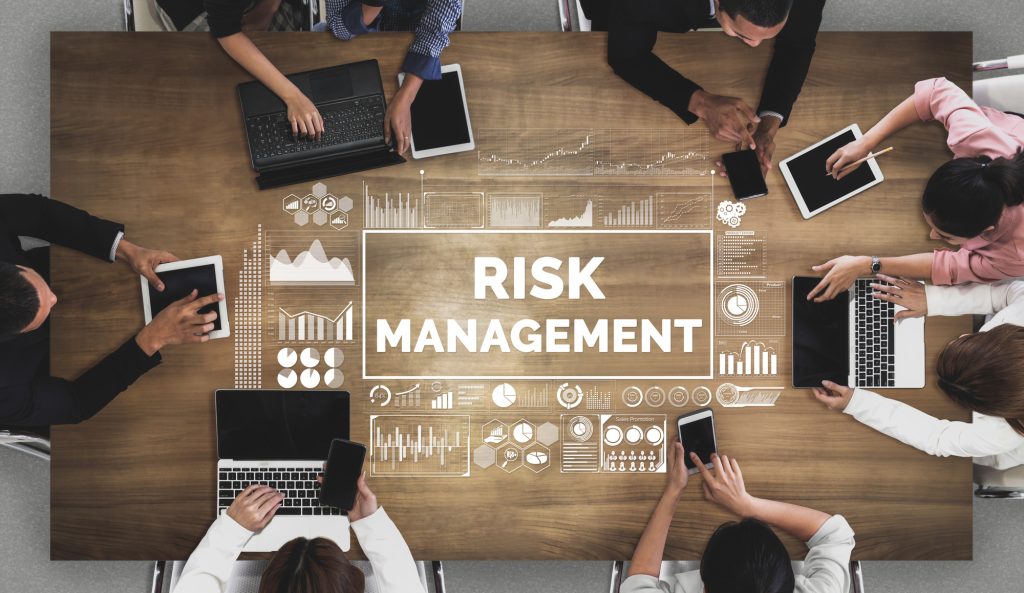Risks, whether it’s reputational, environmental, regulatory, or related to human resources, are inherent to any business environment. For this reason, many businesses implement a risk management strategy to ensure they are prepared when such risks materialize.
In this article, we’ll discuss common risks that may impact different companies, what a risk management strategy entails, and why it’s vital for your business. Read on.
Risk Management Strategy 101
A risk management strategy is a plan established by an organization to identify, assess, and mitigate risks that can impact its operations and objectives negatively. It typically follows a process that includes identifying potential hazards, evaluating them, developing a mitigation plan, and implementing them. It also involves monitoring and reviewing the risk management plan to ensure its ongoing relevance and effectiveness.

Generally, most risk management strategies incorporate the input of business insurance brokers or insurance agents who can help identify potential risks most likely to affect your business, which ones may require coverage, and how to go about it. It’s worth noting that insurance coverage is an essential component of a sound risk management strategy, as it lessens the financial impact of risks.
Common Types Of Risks
There are various types of risks that can affect your business, including:
- Security risks: These include data breaches, cyber-attacks, theft, and vandalism.
- Operational risks: These are risks associated with day-to-day business operations, such as equipment failure, supply chain disruptions, and resource shortages.
- Regulatory risks: Organizations must comply with laws, regulations, and industry standards. Failing to comply with these can result in legal and financial penalties.
- Reputational risks: These include negative publicity and social media backlash, which can harm a company’s image and brand.
- Environmental risks: These include risks related to pollution, waste management, and climate change.
- Human resources risks: These are risks associated with managing employees, such as high turnover rates and violations of labor laws.
- Strategic risks: These are risks related to market changes and shifts in consumer behavior, which can affect a company’s long-term success.
By understanding these different types of risks, you can develop a comprehensive risk management strategy that considers your company’s unique circumstances and goals.
Why Your Business Needs A Risk Management Strategy
Here are key reasons why your business needs to prioritize risk management:
- A Risk Management Strategy Protects Your Business
A risk management strategy could protect your business by identifying and managing potential risks associated with your niche. Without a strategy, your business may be vulnerable to unexpected events that could cause damage to your finances, reputation, or legal standing.
On the other hand, a comprehensive risk management strategy can help your business minimize the impact of these risks, prevent them from occurring, or enable you to recover quickly if a risk does occur.
- A Risk Management Strategy Improves Business Resilience
The primary way in which risk management strategies improve your business’s resilience is by preparing your organization for any likely risks. With a sound strategy, your business can better respond to unexpected events like natural disasters, supply chain disruptions, cyber-attacks, or even disgruntled customers.
A sound risk management strategy can also help ensure your business experiences fewer financial and reputational risks, making it more resilient and trustworthy in the long term.
- Risk Management Ensures Compliance With Rules And Regulations
A risk management plan is crucial for helping businesses ensure compliance with rules and regulations. By identifying potential compliance risks and implementing appropriate controls, your business can reduce the likelihood of non-compliance with regulating bodies and associated penalties or having your operating license withdrawn.
For instance, if your company handles sensitive data, a risk management plan can help you identify potential non-compliance with regulations such as the General Data Protection Regulation (GDPR). You can then implement controls such as regular vulnerability assessments, network monitoring, and data encryption to ensure compliance with applicable regulations.
- Risk Management Strategies Improve Operational Efficiency
By identifying and managing risks that could impact your organization’s functions, you can achieve greater operational efficiency, especially since you can reduce the likelihood of disruptions.
For example, when equipment fails unexpectedly, it can cause downtime and delays that can lead to lost productivity, missed deadlines, and lost revenue. But with a risk management plan, you can implement a preventive maintenance program that includes regular inspections, maintenance, and critical equipment repairs.
Another way a risk management strategy can help is by allowing you to prepare a backup plan. For example, you can have backup equipment on-site or contract with a third-party provider for emergency equipment rental. This way, you can continue to serve customers and maintain productivity and profitability over the long term.
- Risk Management Strategies Improve Shareholder And Customer Confidence
When your shareholders and customers are confident that your business has a sound risk management strategy, they are more likely to invest in your company or purchase your products and services. This means that you can attract more investment and increase your revenue.
Also, a risk management strategy improves your company’s reputation by showing customers and shareholders that your business is well-managed and prepared for eventualities. This goes a long way in helping you avoid negative publicity by ensuring that any problems are resolved quickly and effectively.
Parting Shot
Organizations face a wide range of risks, and it’s essential to implement measures to manage them effectively. By taking a proactive approach to risk management, your company can minimize the likelihood and impact of risks, improve efficiency, and capitalize on opportunities.
Additionally, involving an insurance broker in your risk management strategy can provide valuable insight into appropriate coverage for the risks your team has identified and how to navigate the insurance market to cover those risks.